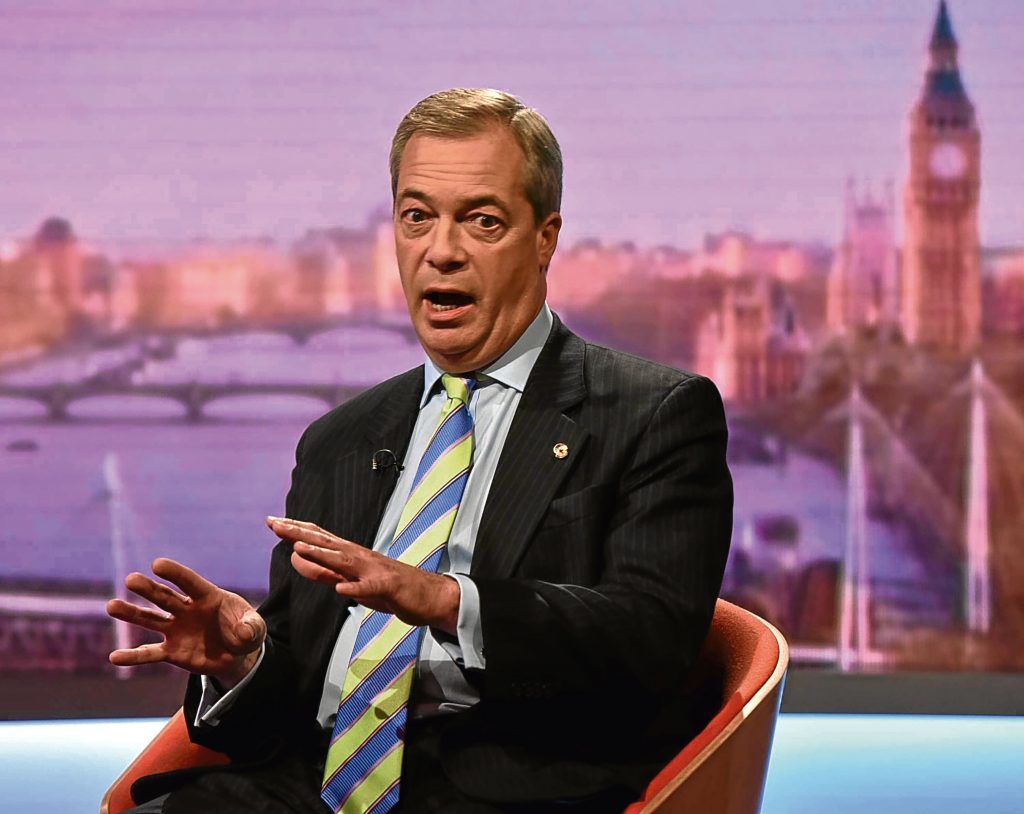
THEY used to say of Scottish Labour that it could stick a red rosette on a monkey and it would get elected.
This complacency was not, however, an affliction suffered solely by the Labour Party.
Other mainstream parties had their “safe seats” where voters could be depended upon to rally to the cause.
And then, after decades during which parties assumed too much, voters began doing something quite extraordinary: they started backing candidates who represented alternative parties.
Swathes of the electorate decided that mainstream parties in whom they had previously placed their faith had lost touch with them.
In Scotland, this meant the rise of the SNP. Across the UK, it meant the rise of Ukip.
Across the world, it has meant the rise of the “outsider”, the politician who’s on the side of the people in a battle with “the establishment”.
As The Sunday Post’s snapshot of voter feeling shows, the vast majority neither believes politicians understand the lives of ordinary people – nor trusts them to change things for the better.
And if voters feel they literally have nothing to lose by taking a punt on a maverick, many will do just that.
Donald Trump’s victory in the US presidential election is the latest – and most troubling – example of this trend.
While we may, initially, be shocked by Mr Trump’s success (how, in the name of the wee man, could Americans choose him to lead them?) it doesn’t take much examination of recent elections across the world to tell us we shouldn’t be terribly surprised by it.
The rise of radical left-wing parties from the fringes to the centre of politics in Greece and Spain showed us that there’s an appetite among voters for something new; something that says we’re on your side.
The great news for would-be politicians is that this hunger for a different kind of politics doesn’t require much by way of detail to be satisfied. It is enough for the candidate to denounce “the establishment” while making appealing (if undeliverable) promises.
That tactic did well for the SNP, here in Scotland, during the 2014 independence referendum campaign. Former First Minister Alex Salmond promoted the idea that Scotland was being held back by the rest of the UK while blithely asserting that any suggestion independence might have a downside was scaremongering.
South of the Border, Ukip and the Tory right employed identical tactics to win the referendum on EU membership. Nigel Farage told voters that he was different, that he wasn’t a “career politician” (despite the evidence of a political career stretching back more than two decades), and he shouted a message – that meant whatever the listener wanted it to mean – about “taking back control”.
Pollsters called the EU referendum result wrong – as they did the results of the last Holyrood and Westminster elections – and maintained this new tradition when examining the battle for the White House.
Mr Trump’s chances were written off weeks before voters went to the polls. Not only did he appear not to have the numbers he’d need, it looked like he was deserted by supporters who’d had enough of his outrageous remarks.
Turns out, outrageous was just what enough Americans wanted.
The Clinton campaign – in common with mainstream political campaigns the world over – looked at the possibility of defeat at the hands of an “anti-estabishment” figure and thought “surely not?”
But just as polling organisations failed to pick up shy Leavers in the EU referendum and shy Tories in the 2015 General Election, they failed to identify shy Trump supporters.
Those people aren’t shy now and they will expect their man to make good on his promises.
Voters’ feelings of disappointment over stagnant wages and unaffordable housing, and the unease of some about multiculturalism are the fuel that will keep the ‘outsiders’ racing on.
The election of Donald Trump as the 45th President of the USA may bring to an end one of the most unpleasant campaigns in political history.
But if mainstream politicians can’t rebuild broken bonds of trust between themselves and voters, his victory will pave the way for other “outsiders”, who may well stoop ever lower in the pursuit of power for its own sake.

Enjoy the convenience of having The Sunday Post delivered as a digital ePaper straight to your smartphone, tablet or computer.
Subscribe for only £5.49 a month and enjoy all the benefits of the printed paper as a digital replica.
Subscribe